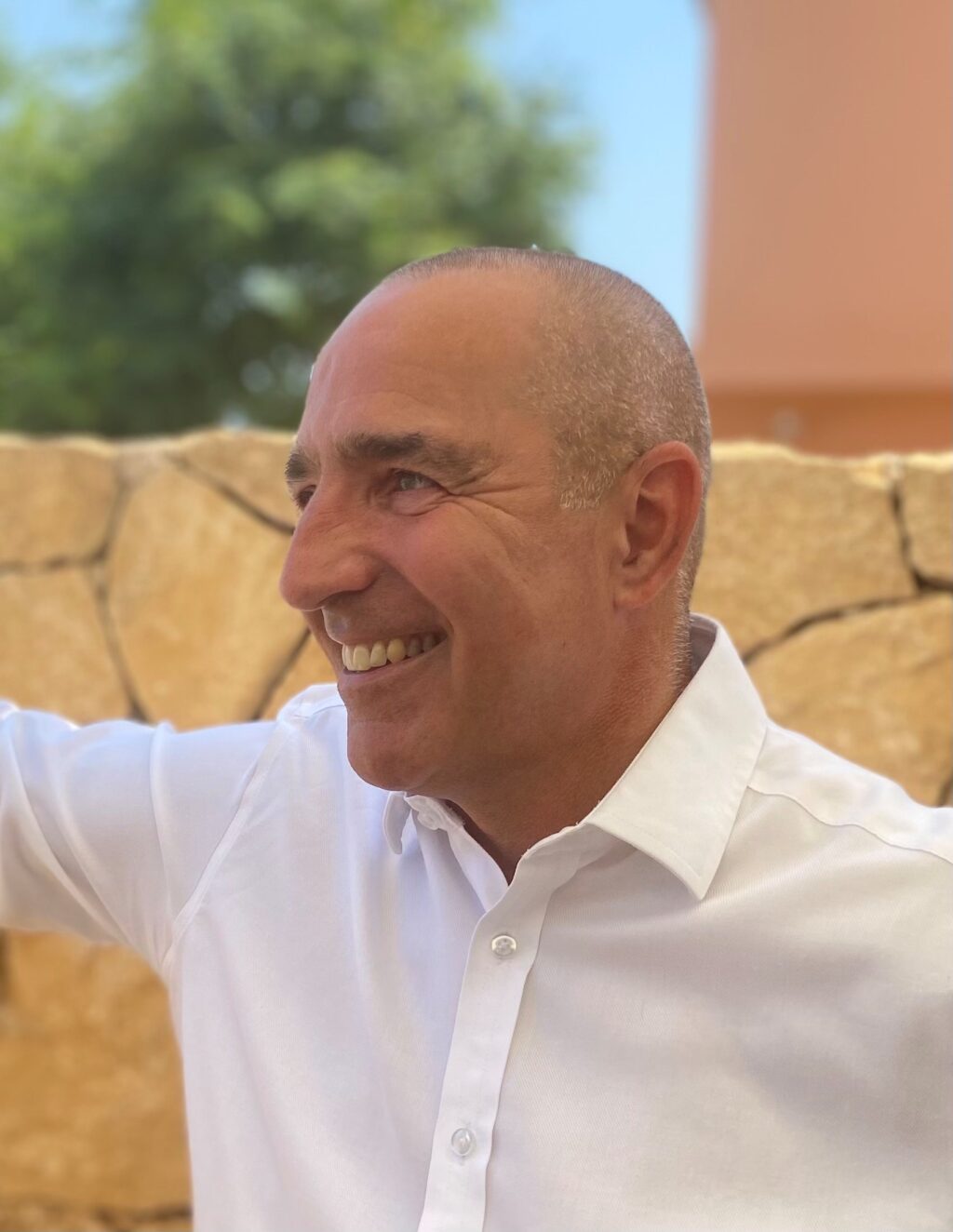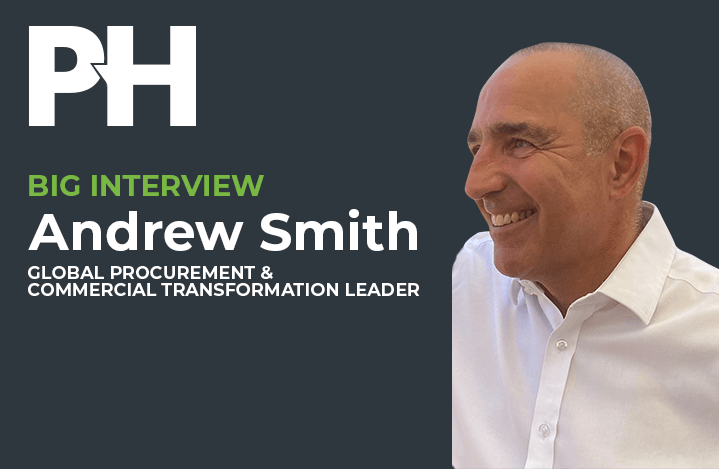He spoke with David Hazeldine, who leads Procurement Heads‘ Interim Management and international offerings, about what ESG really means.
Andrew
I’ve had a really fantastic opportunity to learn from some of the best organisations in the world, around many things. And having been an Interim for 12 years or so I’ve learned a huge amount of different industry sectors.
So, ESG, for me, is really important. It always has been, but we’ve not really talked about it or thought about it as a profession – we’ve just got on with it.
I think now is the time to put our foot on the ball and consider what we do next, so I’m delighted to have this conversation.
David
Having spent the last 12 months championing the sustainability agenda – I’ve held a number of closed session roundtable events with CPOs from different parts of the world with different organisations.
One thing that’s come out of those discussions has been that sustainability, in its broadest sense, is a really key topic for those individuals, but actually, the sustainability policy is far broader than some people think.
I think the ESG element, is a really good way of breaking down what that means, because it means so many things to so many different people, it has such a broad impact that we could be sitting here for probably the next 20 years, chatting about each one.
So the first question I’ve got for you is, how can procurement and supply chain drive ESG to be part of that company’s makeup and fabric?
Andrew
So as I just mentioned, ESG has been around for quite some time and has never been framed as the three pillars of environmental, social and good governance.
Before we get into the procurement and supply chain opportunities, I think everybody gets up in the morning and they try and do the best they do with what they have. We’re human beings rather than human doings, so for me, this whole thing around ESG is about creating a way where we move from doing to actually being about ESG.
As a consumer-driven society, we often just assume we just get things by clicking and it happens. Naturally, the supply chain that goes across that – end-to-end – does have an environmental cost, a social cost and a cost in governance.
For me, there’s a bit that says, ok, how would you educate the audience? I think procurement and supply chain are uniquely positioned in the organisation – almost as a helicopter – they can see and start to point and prod it all together.
I think that it’s got to start somewhere – so start small. Across those three pillars, how can we as humans have the conversation in the right way and frame it in such a way that you then make it part of the decision making process.
Typically, when procurement may have gone to market previously, there’ll be a particular reason why you go for a particular way, which is around cost. Reducing costs clearly is how procurement would be measured in the past. But, total cost, the true costs in the context of ESG is really important.
This is like running a global transformation programme with the biggest scale when you start to consider that everybody’s going to get with the programme. It takes many dominoes to fall together to create the right ecosystem.
We’re seeing a lot more of this now with the Sustainable Procurement Pledge and CEOs getting together.
But I think we’re at a tipping point and a pivot, which is really powerful. So, to come back to the question, I think it’s being bold. I think it’s being clear about what ESG means, and then about saying, ok, so what are the baby steps that we would do across environmental?
David
Who owns that agenda? Is this something that is pushed down from the board or is it something that is proactively developed from within the business and pushed up to the board?
Andrew
I guess there’s a couple of answers. Organisations have different degrees of maturity and different aspirations and ambitions – to want to be a leader or a follower within ESG.
There’s no right or wrong answer.
However, there are some very enlightened procurement and supply chain leaders that would go hang on, let’s just stand here and examine why we’ve made that decision.
They’d ask – does it satisfy for the longer term? Is it the right impact? Sometimes it takes a situation that is less than ideal, which makes the CEO and CFO suddenly decide to focus on ESG.
There’s a ripple effect and I’d rather be at the front end, creating the agenda, being provocative around ESG.
As a leader, and as a commercial leader of any organisation, it’s around all about our people, colleagues and making it real, making you feel it start to be part of the value set that you create in the organisation.
Then you create the buzz and the excitement, you create something special. There are several ways you can cut it but it’s much better if you can get some real positive disruption across the entirety of the organisation, even IT.
Yes, just because the company uses a cloud solution doesn’t mean there’s a cost – ‘in the cloud’ doesn’t mention the huge environmental impact and what I’ve seen there are great examples of impact – where you’ve got companies sinking data into big submarines etc.
David
In one of my roundtable events, there was a really interesting comment by one of the CPOs and it resonated really well across the group. That was when they took up their most recent CPOship, they had their first meeting with the board and they were talking about the scope of the role and what was expected and that particular CPO said, just to get this clear, my role here is not to save money, my role is to spend money, but spend it wisely and generate value.
And that’s really good because when you look at that, it does give a very different perspective on the same story. One of the blocks for me – that people have said previously around sustainability – is that ESG is almost too expensive.
To go sustainable is too expensive.
Andrew
Social value, and the creation of social value, is something that you can have in abundance if you think about it the right way.
Having been blessed with being in procurement for more than a few years now and having grown up in a sales and marketing environment, where it’s all-around a different degree of measures and numbers of soft and hard benefits, and what happens – getting into procurement, I realised that you are dragged to a number when actually, the number comes and looks after itself if you do the right things in the right way.
So for me, this is a moment in time for the procurement leadership groups and supply chain specialists to come and say, “Is there a moment to reposition the proposition”?
Yes – I don’t believe you can work in isolation and actually, there’s a real sense in my mind, that the creation of a Chief Commercial Officer Directorate allows you to go back to your very first point about how do you make it happen to create the legitimacy in an organisation that brings everything together, that aligns to the vision of the organisation and engages your supply base.
Yes, they too, are struggling with ESG. We put it down as an ecosystem where you learn from each other and your speed to value is so much faster as a result of working together.
David
Sustainability and particularly ESG is no longer nice to have – the time, is now for it to be intrinsically part of the fabric of the business, the makeup of the balanced business scorecard. And the way to embed it within the organisation is to make it part of their performance rewards.
Andrew
This is like the basics of running a business. The remuneration of the senior executive should be anchored around ESG and setting some tangible outcomes.
So, being able to manage that dynamic as well, with a really strong story puts you ahead of the other organisations that may not be there today.
I think if you create a business startup today, you’ve got the opportunity to build something very different with ESG at the core. I’ve got progressively better because I’ve got three great kids, but they always hold me to account about what am I doing on my personal ESG agenda.
David
Yes, and it’s exciting, isn’t it? I think it’s really exciting that you can innovate for the greater good, you can innovate for long term benefit.
When I’m talking about innovating, I’m talking not only about product innovation within manufacturing sites and manufacturing businesses, but I’m talking about innovating by bringing competitive businesses together, as you say, to start driving some consolidated agendas, mutually leverage and drive a sustainability agenda.
You can look at the environmental or social with the governance piece all pulled together, you’re not competing against each other for that – you’re driving a positive agenda together.
Andrew
I thought about how you could frame this to get colleagues excited. You know something like Everyone Supporting Goodness (ESG).
I go back a few years when I was working with a rather large global organisation and I created a game-changing moment. I actually went to market and called it a Game-Changing Moment – that saw several competitors in a room together, working through a solution for the greater good of the guests.
That was a moment in time where you said wow, that’s different. What that meant is that there was plenty for everybody. It allowed us to do things very differently – we became a lot more efficient and more effective. That was kind of for me, the moment I went, right, we can do this. That was a good few years ago and sometimes you have got to make those big sort of bold moves.
Andrew Smith is an experienced C-level Executive who has identified, led and delivered significant transformation programmes across multiple sectors.
With a track record of delivery in food and drink, pharmaceuticals and utilities amongst others, he uses his experience to drive business transformation on a global scale – across the entire value chain from grain to glass, quality management, brand building, organisational design, HR, distribution and procurement.







